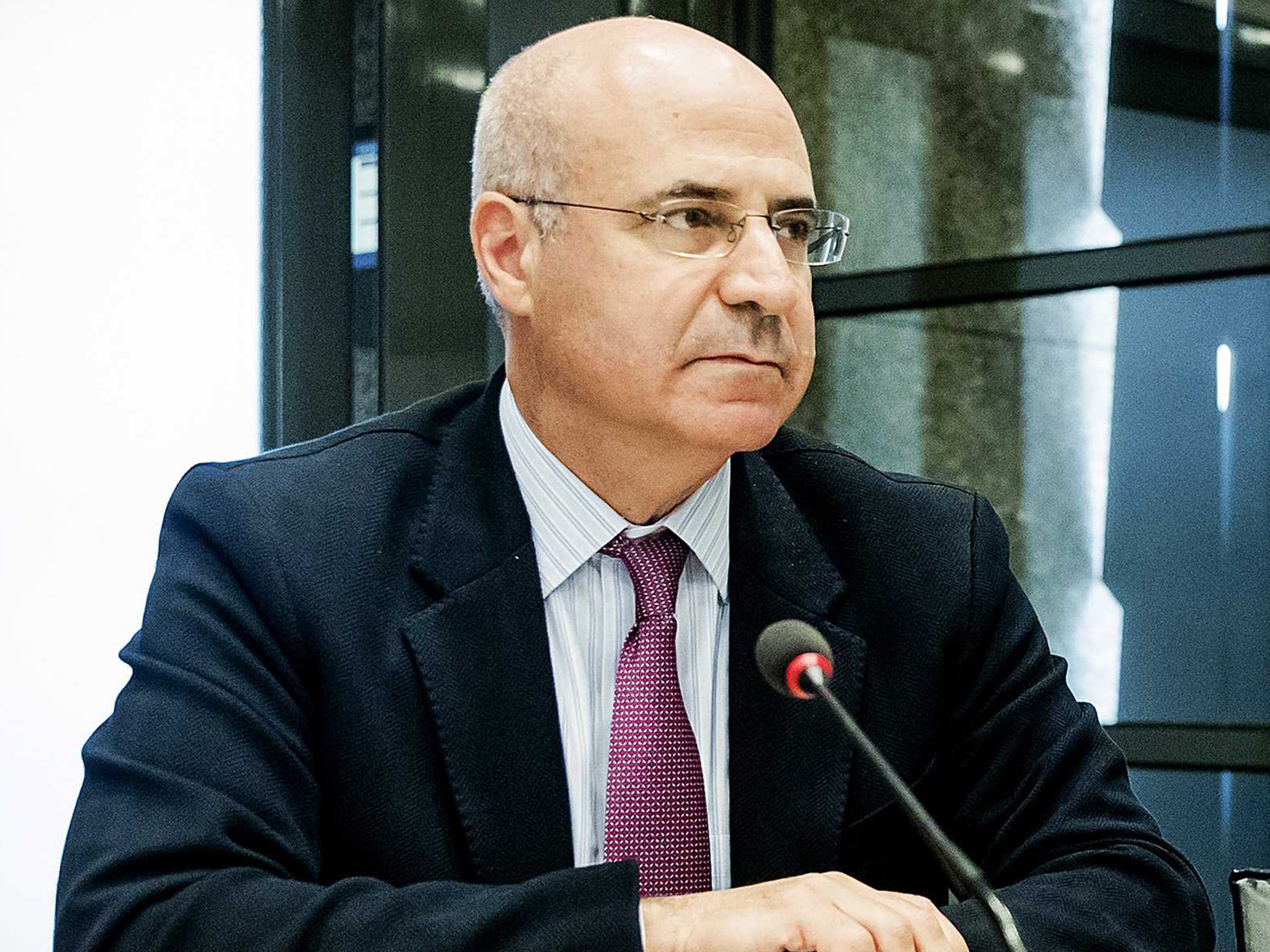Sergei Magnitsky: Russia accuses 'Kremlin's public enemy number one' Bill Browder of poisoning former lawyer
Russian prosecutors admit that whistleblower on $230m fraud might have been murdered — while insisting prominent Putin critic should be held responsible

Russian prosecutors have opened a criminal investigation against the London based hedge fund manager William Browder, accusing him of creating an international criminal network and killing his former lawyer, Sergei Magnitsky.
In a conference on Monday, officials elaborated on the extraordinary accusations by suggesting Magnitsky may have held “compromising material” on his boss.
That, they speculated, had provoked Mr Browder — who styles himself as the “Kremlin’s number one public enemy” — to administer “a diversionary chemical substance containing aluminium compounds, leading to acute heart failure and a picture of a natural death”.
It is the first time Russian state prosecutors have admitted Magnitsky might have been murdered, but in fact little about his demise appears natural. He died in agony on 16 November 2009, following what appeared to be an internal organ rupture.
In letters and complaints written in the months leading up to that day, he documented draconian detention conditions, illness and, on several occasions, being deliberately denied treatment. Visibly sick on the eve of his death, he was transferred to a prison with no medical facilities.
An investigation held under the auspices of then-president Dmitry Medvedev concluded he had been beaten by prison guards in his cell.
Friends and colleagues say Magnitsky was arrested and tortured because he had uncovered and testified against a scheme in which interior ministry officials had defrauded the Russian taxpayer to the tune of $230m (£179m).
But, they say, the bigger fight was always against his boss, Mr Browder — who was the largest foreign investor in Russia until he was barred re-entry in November 2005.
Mr Browder was at one point a prominent supporter of Vladimir Putin, and even cheered as the oligarch Mikhail Khodorkovsky was imprisoned in 2003. But since Magnitsky’s death, the millionaire has embarked on a radically different course, with a campaign against Kremlin bureaucrats. This has resulted in new legislation in the United States, the Magnitsky Act, which targets corrupt Russian officials and their assets.
The legislation has clearly irked the Kremlin, which has invested a lot of energy in opposing it.
Mr Browder’s activism was one of the issues that Mr Putin discussed during his summit with Donald Trump in Helsinki this July. The US president even claimed Mr Putin made “an incredible offer” to him — offering US investigators access to the 12 intelligence officers indicted by special prosecutor Robert Mueller for election interference in exchange for Russian access to Mr Browder.
Responding to the news of the new prosecution, Mr Browder said it was evidence of how much the Magnitsky Act had “struck a nerve”.
The Russian press conference on Monday made little mention of the conditions Magnitsky was being held in at the time of his death, nor Mr Browder’s 10-year anti-Kremlin campaign, both of which have clearly played a role in previously attempted prosecutions.
Neither did officials mention the poisoning of double agent Sergei Skripal and his daughter, which seemed to inform some of the newest details, such as chemical poisoning.
Responding to journalists’ questions, presidential spokesperson Dmitry Peskov rejected any direct link between the two cases.
“Browder started a lot earlier than the Skripal affair,” he said. “A new episode has started, that’s all.”
Referring to largely indecipherable documents on a projection screen, prosecutors said they had collected “enough evidence” to indict Mr Browder for his involvement in the “most serious of crimes”. The offences carry prison sentences of up to 20 years.
Russia will issue warrants for his detention and the arrests of assets under his control, officials announced. However, it remains to be seen whether Interpol will recognise them. Similar warrants issued against Mr Browder have been thrown out for being politically motivated.
It is also unclear what, if any, role this extraordinary turn of events will play in the election of a new head of Interpol on Wednesday, with a Russian candidate in prime position.
Mr Peskov made little secret of Mr Putin’s desire to see a Russian installed as chief.
“Of course we are supporting [a] Russian candidate,” he said. “We want a Russian to win in these elections.”
Join our commenting forum
Join thought-provoking conversations, follow other Independent readers and see their replies
Comments